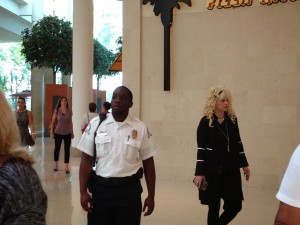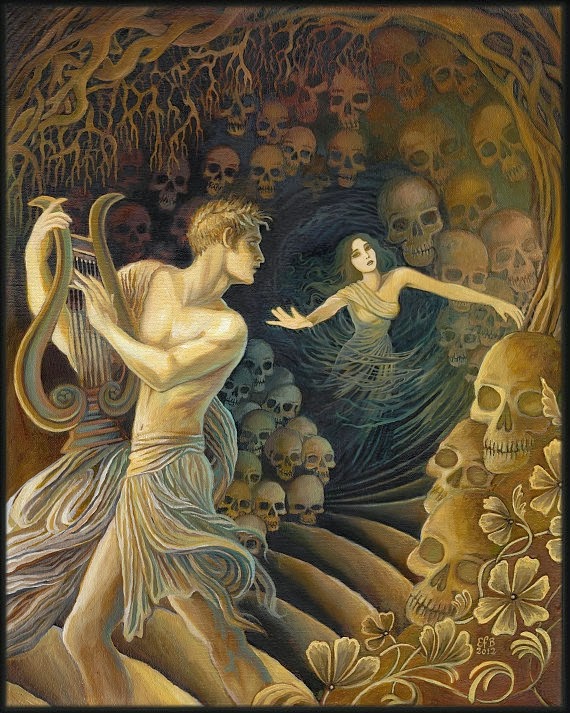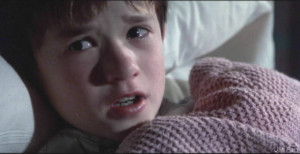I’m winging my way to Australia today so apologies that I won’t be able to join in the discussion. I will, however, be trying to do a little writing on the way (although you all know how hard I find it to write ‘in public’!). I started a new project last week and have been enjoying coming up with my new characters’ names – something I always have a lot of fun with and yet also suffer way too much angst over…
A character’s name can be critical to establishing the voice and feel of that person in the world that I am creating, and I often spend a considerable amount of time tinkering with main character names until they feel and fit the character exactly right.
Since I mainly write historical novels, I have a number of resources at my disposal to help me come up with names. These include lists of popular boys and girls names for the time period I’m writing about as well as handy British last name resources like census data, historical records, newspapers, magazines and even Debrett’s (I often write about aristocrats, after all!). I’m like a sponge at first, soaking in all the details about names and then I play around with combinations until I find the right fit. Since I’ve also been writing with a renewed sense of appreciation for the humor in certain names, I have also been rereading Charles Dickens. He is, in my opinion, one of the cleverest ‘namers’ in literature (who can forget names like Uriah Heep, Ebenezer Scrooge or Mr. Pumblechook!). I recently discovered the often hilarious Dickens name generator and have spent many an hour or two concocting my own ‘Dickensian’ type names.
So how do you come up with your character names? What resources do you use and how much time and effort do you spend? Is it something you agonize over, trying to make sure the name ‘fits’ the character or do you find the names just come to you and slide on your characters as easily as a silk glove? Apart from Dickens, who do you think has come up with some of the greatest, most memorable character names?
Category Archives: creating characters
Real Life Characters
She looked like a witch straight out of the Harry Potter series. Wild curly blond hair. All black outfit including a jacket with unusual cuffs and an odd pendant necklace. Black boots. I did a double take when I saw her. Had a Harry Potter store opened in the Mall at Millenia where I was shopping? Or had she come from work at Universal Studios, still in her costume?
This strange apparition strolled through the mall to the apparent indifference of anyone except myself. And this reaction brought home the claim I’d made in Warrior Prince, my first Drift Lords adventure that takes place in Orlando. People are so used to seeing themed characters in this city that they don’t think twice about someone striding around in costume. Thus when my space-faring warriors show up in their uniforms and bearing arms in this story, no one reacts to their unusual attire.
I am still curious about this person I saw in the mall. Was this the way she normally dressed? Did she believe herself to be a witch like in the Potter saga? Or was she an employee who needed to stop off at the mall before going home to change? That mass of blond hair could easily be a wig. The only thing missing was a magic wand. Or is this my imagination taking flight?
It’s not the first time I’ve been inspired by a random character. This happened to me once before on a cruise. I noticed a beautifully dressed older woman with a head of white hair and designer duds. I turned her into a countess in my cruise ship mystery, Killer Knots. It’s just so exciting to see someone who can inspire one’s creativity. Our writer’s voice whispers in our ear: “What if…?” What if this costumed character is an evil superhero from another universe? Or a nutty theme park employee who believes herself to be her fictional character? Or…the possibilities dazzle me.
When have you been inspired by a real life character you’ve encountered?
Sympathy For the Bedeviled
“All writers learn from the dead…because the dead control the past, they control the stories, and also certain kinds of truth. So if you are going to indulge in narration, you’ll have to deal, sooner or later, with those from previous layers of time. The dead may guard the treasure, but it’s useless treasure unless it can be brought back to the land of the living and allowed to enter time once more — which means to enter the realm of the audience, the realm of the readers, the realm of change.”
This, in a nutshell — well, a lovely quote — is what was off about my friend’s story. Because she had not given her victims a voice in the book, we were missing a vital part of the narration. She needed to bring these victims back to life so there would be a reason for the heroine to solve their murders. Yes, the protag can be self-motivated (a cop looking for glory, husband bent on vengeance, a Poirot who wants to unravel the puzzle). But that is usually intellectual and protag-centered. It is not reader-centric and visceral. And the best crime fiction pulls readers in emotionally, thrusting them deep into the interior lives of the characters. So the victims must be a tangible presence in the story even though they are never “on camera.”
How do you do this? Well, once I was able to articulate this to my friend, our critique group had plenty of suggestions. Maybe the other students hold a memorial service, as kids are wont to do. Perhaps the heroine needs to interview parents or friends who offer memories and mementos. Culling through a victim’s possessions can be incredibly evocative and emotional, as any of us who has ever had to sort through a relative’s things after a funeral knows. Yearbooks, photographs on a mantel, journals, letters, a Facebook page…it can all be fodder for making a victim come back to life on a page.
Now that I think back on my critique session, I am surprised that this should have been such a revelation to me. My own series hero, Louis Kincaid, is one of those investigators who is drawn to cold cases and is compelled, at his core, to “speak for the dead.”
In our third book, Thicker Than Water, he is trying to solve the rape and murder of Kitty Jagger. She has been dead for 20 years but Louis talks to her boss, her best friend, the detective who worked her case, anyone who remembers her. What slowly emerges is a Rashamon portrait of Kitty that sends the case in a new direction even as it builds sympathy for the dead girl.
The most moving scene, I think, is when Louis visits the girl’s ailing father, who allows Louis to examine Kitty’s bedroom, which has been untouched for 20 years. We give a full three pages of description to the room and its contents. The scene ends with:
He picked up one of the half dozen perfume bottles. It was called Heaven Scent. He brought it up to his nose and drew back. It was cloyingly sweet. It was the smell that still clung to the room after twenty years.
He set the perfume down, letting out a long breath.
Time had stopped. He could almost see her, jumping out of bed, late for school, coming back and dumping her books, changing into her uniform before hurrying off to work.
His eyes traveled slowly around the tiny room. They had just left everything. Why hadn’t anyone packed her things away? And that old man sitting out there in his lounge chair, like he was still waiting for her to walk in the door and make him grilled cheese.
Of course Louis is looking for clues here in the bedroom. But more to the point, he is letting Kitty tell her own story. He is letting her come back to life. He is forcing us, the reader, to care. And I hope, by the time the reader closes the book, we mourn the one who is gone.
Write Who You Know (?)
I’ve often been asked whether I have any characters in my novels based on real-life people It used to seem strange to me that many would-be writers seemed so concerned about real people suing them over characters in their novels. This is probably because I’ve never overtly based a character on anyone I actually know. Until now…
To be honest I’m still pretty nonchalant about the whole issue. It’s not like I’m incorporating anybody famous or likely to sue for defamation. From what I’ve heard from many writers, even when they did write a character based on someone they knew, that person didn’t recognize it was them anyway! All too often people who know you either erroneously assume they are one of your characters or fail to see the glaring resemblances to those who you do include:)
In my latest WIP I do have a character drawn from a person I actually know (someone who basically would have made a good Nazi…) but I am creating a fictional composite nonetheless. Although there are some core (evil) traits which have caught my eye, I am conscious that I am writing a novel not a memoir and so the real life person really provides only a jumping off point for my character to develop. (Nonetheless I am looking forward to this character coming to a ‘sticky end’ in the book – call it a kind of karmic catharsis that cannot be achieved in real life!).
I think when including characters based on actual people, writers should probably be aware/think of the following:
- Be mindful that you may run afoul of defamation laws if what you have done is so obvious that most readers would recognize the person and think less of them in real life (there are of course a myriad of laws/cases and exceptions and a discussion of the complexities of the law is beyond what this post requires:). Usually the person would have to be pretty well known and have a reputation that could be compromised by what you write (and I’m guessing that most people’s Aunt Maud or Cousin Loopy wouldn’t fit this bill).
- Consider the consequences of including any characterization that is instantly recognizable as someone you know (be it friend, family member, colleague) carefully. You need to understand you could cause offence and/or alienate people as a result.
- Understand too that many people close to you will assume (correctly or incorrectly) that they must be a character in your book and will scour the pages trying to identify who they might be. You should plan on how to respond because 99.9% of the time they will be totally wrong.
- Other than that, recognize that everyone creates characters based on their own experiences, memories and the people they have known. It is therefore inevitable that some aspects of people’s lives or characters will pop up and inhabit a writer’s imaginary world.
So have you ever consciously included a character in one of your books based on someone you know? Were they ever the victim or perpetrator? Did anyone ever recognize themselves as a character in your book and if so, were they right?
What’s in a name?
 This weekend I saw Baz Luhrmann’s sumptuous, over the top, movie adaptation of The Great Gatsby and was reminded, yet again, of the power certain fictional names have on the psyche. Gatsby. Not a name one easily forgets. Neither is Heathcliff or Mr. Rochester or those great detective names: Sam Spade, Nero Wolfe, Sherlock Holmes and Hercule Poirot. Even the most mundane sounding names can achieve prominence, simply because of their ordinariness (take Harry Potter for example). But naming a character is by no means an easy task. You have to balance the unusual with the commonplace and try to run the gauntlet between a cool, distinguished name and one that verges on being a soap-opera/porn name that you’d expect to see on somewhere like m porn xxx instead of a blockbuster Hollywood picture. So how do you come up with a memorable character name?
This weekend I saw Baz Luhrmann’s sumptuous, over the top, movie adaptation of The Great Gatsby and was reminded, yet again, of the power certain fictional names have on the psyche. Gatsby. Not a name one easily forgets. Neither is Heathcliff or Mr. Rochester or those great detective names: Sam Spade, Nero Wolfe, Sherlock Holmes and Hercule Poirot. Even the most mundane sounding names can achieve prominence, simply because of their ordinariness (take Harry Potter for example). But naming a character is by no means an easy task. You have to balance the unusual with the commonplace and try to run the gauntlet between a cool, distinguished name and one that verges on being a soap-opera/porn name that you’d expect to see on somewhere like m porn xxx instead of a blockbuster Hollywood picture. So how do you come up with a memorable character name?
First and foremost it must reflect your character. I find this is a critical first step – finding a character name that reflects the character’s voice on the page. I’ve recently been revisiting an old WIP (finally having worked out the answer to a plot conundrum) and found myself weighing up two versions of the main protagonist’s name, trying them on to see which fit best. It’s a tricky process and one that has a cascading effect on other character names as well (as I can’t exactly have a cast of characters all with names starting with ‘M’!). But what other issues do authors need to pay attention to in naming characters? Here are a few:
- Make sure the name is appropriate for the time and place of the story. For example, a story set in Victorian England is unlikely to have a female called Morgan Star. Equally well, it’s hard to imagine a contemporary character in their 20s called Edna or Constance (unless there’s a good back story or some degree of irony/humour going on!).
- Check meanings/origins of names so you don’t inadvertently use an offensive or inappropriate foreign word or name. Also, sometimes the name can provide the reader with a hidden clue based on the origin or meaning of their name.
- Make sure the name looks great on the page as well as when spoken aloud. On occasion, I have come up with a great name on paper but the pronunciation of it has caused a few tongue twisters (which is a bit embarrassing at book readings!).
- Don’t try to be too clever, too cute or too obscure. The character’s name should enhance, not detract from the story so don’t make a reader work too hard to decipher a name. Use the most common spellings unless there is a real reason (a reader will be taken out of a story by a name that they have to struggle to work out).
- Finally avoid names which end in an ‘s’. I learned this the hard way…
So what about you all – what advice would you give fellow writers about coming up with terrific character names? What are are your favorite characters names? What about character names that set you teeth on edge?






